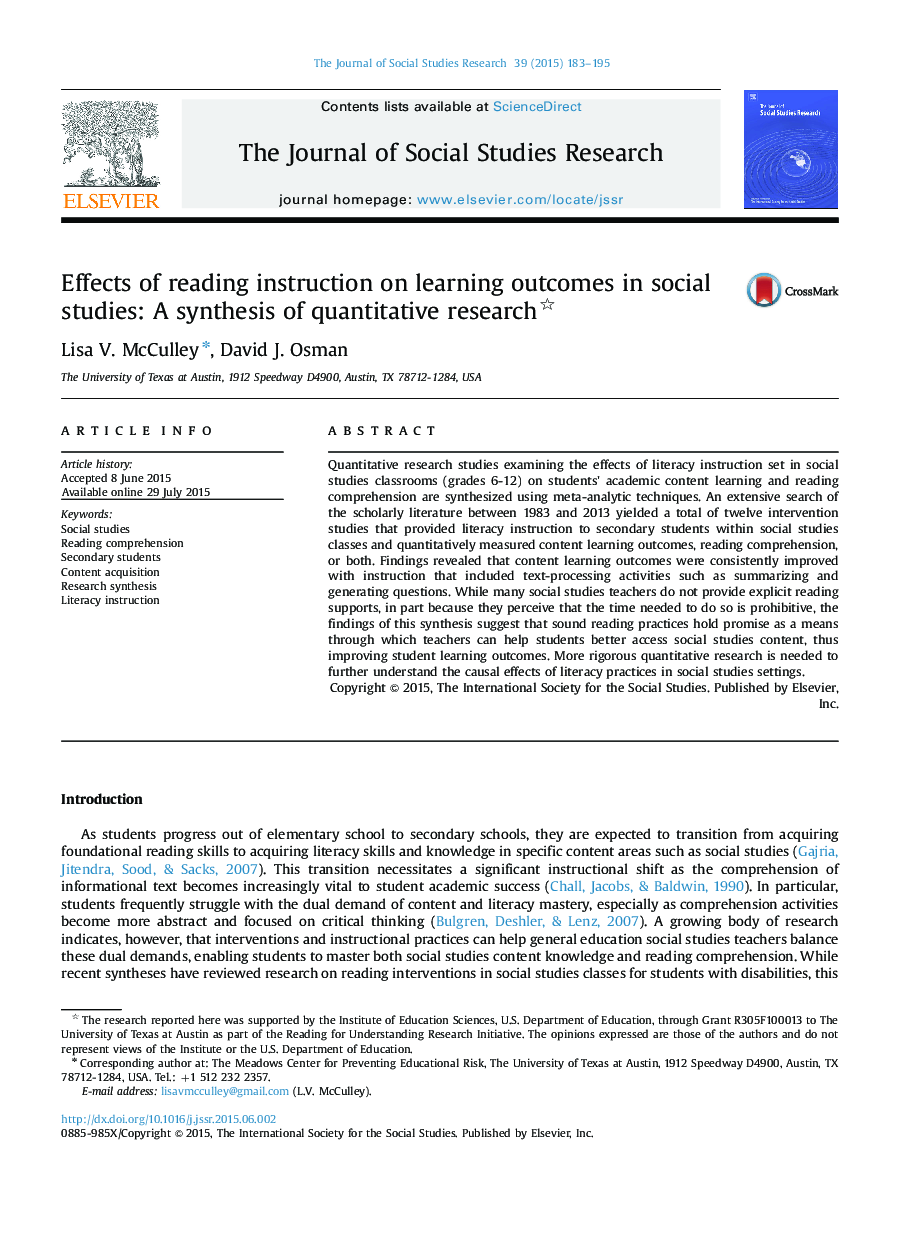| Article ID | Journal | Published Year | Pages | File Type |
|---|---|---|---|---|
| 108326 | The Journal of Social Studies Research | 2015 | 13 Pages |
•Literacy instruction supports both reading comprehension and academic content•Literacy instruction does not negatively affect content knowledge acquisition.•Few studies investigate the effects of literacy instruction in social studies.•More research is needed to explore the effects of literacy instruction in social studies.
Quantitative research studies examining the effects of literacy instruction set in social studies classrooms (grades 6-12) on students׳ academic content learning and reading comprehension are synthesized using meta-analytic techniques. An extensive search of the scholarly literature between 1983 and 2013 yielded a total of twelve intervention studies that provided literacy instruction to secondary students within social studies classes and quantitatively measured content learning outcomes, reading comprehension, or both. Findings revealed that content learning outcomes were consistently improved with instruction that included text-processing activities such as summarizing and generating questions. While many social studies teachers do not provide explicit reading supports, in part because they perceive that the time needed to do so is prohibitive, the findings of this synthesis suggest that sound reading practices hold promise as a means through which teachers can help students better access social studies content, thus improving student learning outcomes. More rigorous quantitative research is needed to further understand the causal effects of literacy practices in social studies settings.
